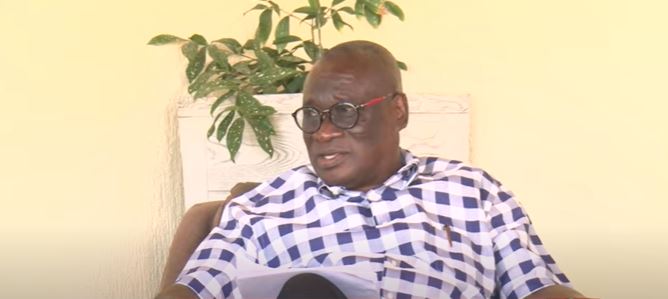The Ghana National Petroleum Corporation (GNPC) CEO says the company's deafening silence has been intentional to allow the Civil Society Organisations (CSOs) to air their views and grievances.
Dr K.K. Sarpong said this tactic being employed by the GNPC is to avoid responding to “every little noise” the CSOs may make in connection with the Aker deal brouhaha.
He said at the appropriate time; the GNPC will soon assemble all the claims made by the CSOs and do justice to them appropriately.
Some 15 CSOs in the extractive industry have petitioned parliament to stop the Ghana National Petroleum Corporation (GNPC) from acquiring stakes in Aker Energy and AGM Petroleum Ghana oil blocks.
According to them, the deal threatens Ghana’s economic and fiscal outlook.
GNPC had previously asked parliament to approve a loan of $1.65 billion for the acquisition of a 70% stake in the South Deep Water Tano (SDWT) operated by AGM Petroleum Ghana Limited and a 37% stake in the Deep Water Tano/Cape Three Points (DWT/CTP) operated by Aker Energy Ghana Limited.
Whilst the CSOs acknowledge in the petition that its members are not opposed to the government of Ghana increasing its stake in natural resource ownership, it warned the deal was not in the interest of Ghanaians.
However, reacting to the claims made by the CSOs, the CEO said their opposition to the deal is a normal reaction to change.
“I must say that obviously, any new thing faces resistance. It is something you easily find in management literature. People resist change. And then anything new raises doubts, people are concerned, it's natural, the fear of the unknown.
“But I think it’s important that Ghanaians, we try and look at things objectively not to be moved by emotions, assemble the facts and tell the truth. And I think that is very, very important,” he said August 26 on JoyNews’ Upfront.
He, however, cautioned against the “deliberate distortions” of facts to garner distrust and opposition from the populace against the GNPC and its plans to increase Ghana’s stake in natural resource ownership.
“I believe we must have constructive comments, reasonable, objective conversations so that we can all take lessons from all that we’ve discussed to be able to shape policy,” he said.
Latest Stories
-
NDC administration will reverse all ‘last-minute’ gov’t employee promotions – Asiedu Nketiah
11 minutes -
Kudus sights ‘authority and kingship’ for elephant stool celebration
11 minutes -
We’ll embrace cutting-edge technologies to address emerging healthcare needs – Prof. Antwi-Kusi
45 minutes -
Nana Aba Anamoah, Cwesi Oteng to attend Philip Nai and Friends’ charity event
49 minutes -
Environmental protection officers receive training on how to tackle climate change
52 minutes -
CLOGSAG vows to resist partisan appointments in Civil, Local Government Service
2 hours -
Peasant Farmers Association welcomes Mahama’s move to rename Agric Ministry
2 hours -
NDC grateful to chiefs, people of Bono Region -Asiedu Nketia
2 hours -
Ban on smoking in public: FDA engages food service establishments on compliance
2 hours -
Mahama’s administration to consider opening Ghana’s Mission in Budapest
2 hours -
GEPA commits to building robust systems that empower MSMEs
2 hours -
Twifo Atti-Morkwa poultry farmers in distress due to high cost of feed
2 hours -
Central Region PURC assures residents of constant water, power supply during yuletide
2 hours -
Election victory not licence to misbehave – Police to youth
2 hours -
GPL 2024/2025: Nations thrash struggling Legon Cities
2 hours

